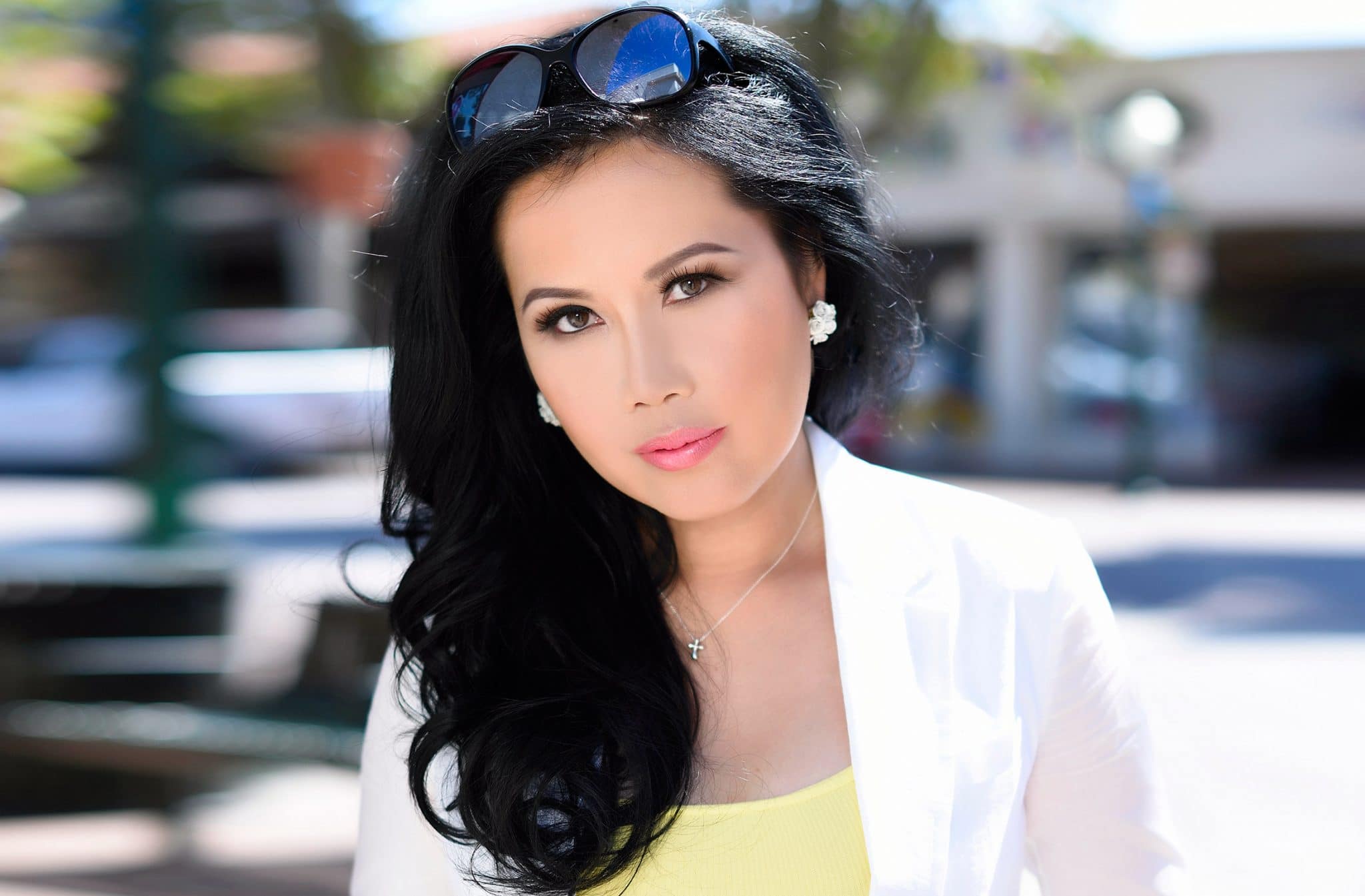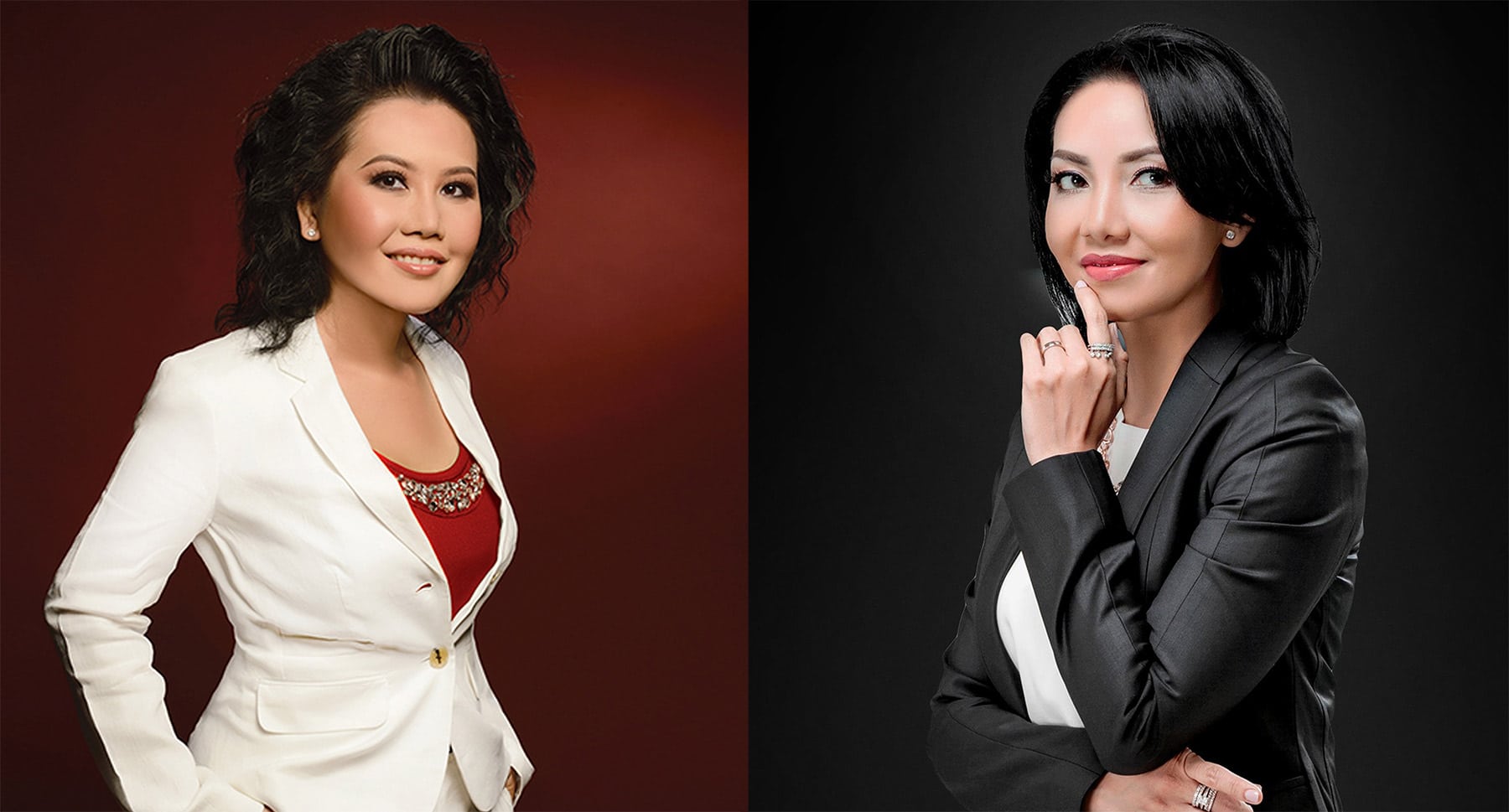Jenny Q. Ta is a veteran Wall Street millionaire and the CEO & Co-founder of VCNetwork.co, a virtual “E-Harmony meets Shark Tank“ that bridges the gap between modern entrepreneurs and forward-thinking venture capitalists worldwide.
Jenny and her co-founder, Shinta Dhanuwardoyo (Forbes Magazine’s “99 Most Powerful Women” by Globe Asia), are paving the way for more female entrepreneurs who are seeking VC funding.
They have both experienced diversity issues first-hand in navigating the world of VC funding, especially the funding limitations for women-focused startups.
The co-founders have been featured as thought leaders in TechCrunch, Forbes and The Huffington Post.
I had a chance to sit down with them both, and sure learned a lot.
So much in fact, I decided to split the interview into bite sized episodes. The conversation ranged from women’s empowerment to the funding environment in Orange County.
Join me as I learn from two women who are truly impacting the global startup economy.
I sit across Jenny Q Ta, a striking woman with the confidence that could captivate a large room. But it was just us (and her PR agency representative), in a quiet posh room at Applied Innovation, on University of California, Irvine campus.
As we waited for her co-founder Shinta, who lives in Jakarta, to call in. Jenny and I got to talking.
After some introductory conversation, I jumped right into it.
Ryan: Jenny, It sounds like you got your career going early, but did you face struggles along the way? Or did you just happen to be in the right place, at the right time?
Jenny: Well, no…when it comes to struggles, there were a lot. Probably more than I can name or list. I can certainly say maybe some of the top ones.
For starters, my background was on Wall Street.
I spent eighteen years there, starting in my twenties. When I was on Wall Street, one of the biggest struggles, of course, was as a broker dealer. When people say, “What’s a broker dealer?” I say it’s like a small Goldman Sachs, but most people still don’t know what that means. Our job is to make a market. And when we make market, we can buy/sell in bulk.
What that means is, if I pick up the phone, I could call the New York Stock Exchange and speak to a specialist or one of the market makers. In my entire firm, there’s fifty people — including me — and say we all want to buy Intel, for example. Instead of calling in each order of a thousand shares here and there … I can call in for everybody by calling, “Hey, I got a bulk trade for a hundred and ten thousand shares of Intel.” Once the order is executed, every client has the exact same price.
In reality, each time I picked up the phone and I called, there were a couple of negatives working against me. First of all, I’m female. That’s the obvious, right? Second of all, I don’t think I have a horrible accent, but there is a small accent. That was against me too — so of course the person on the other end of the line started thinking, “Okay, so she’s probably not Caucasian… and of course, she’s a she. What the hell is she doing calling the trading desk?” It’s kind of like that. The ones … who haven’t picked up an order from me, they would never know.
Those were some of the oddest, weirdest obstacles that I had to explain myself because they would think, “Oh, you got the wrong number.” You’re calling the bulk trading desk, right?
When men called, they probably never had to go through the first thirty or sixty seconds to explain why they’re calling in. That is precious time when the market is constantly moving.
You get what I’m saying? If you call in and you say, “Hey, this is Ryan. I got a hundred and ten thousand shares of Facebook. Wheel me in. Where’s the bid? Where’s the ask?” Right?
Ryan: Yeah.
Jenny: Boom, you get it right away. But me? If I happen to pick up a guy who’s already heard of me and took my order before, I’m fine with it. I’ll be that “Ryan”, right? Boom, straight in.
But if they’ve never worked with me before, then they’ll say, “Uh, you’ve got the wrong number.” Then I insist, “No, I don’t. This is Jenny Ta. My BD number is …” I had to go through all that crap every time I called to do my job.
That was an obstacle because I’m in a man’s world, Wall Street. I’m not a man, I’m not a white woman, and I have a slight accent. That was one of the daily obstacles of being a woman on Wall Street.
Ryan: What’s interesting is that — just right out the gate, you have the extra hurdle of constantly justifying yourself to do your job on the phone… but I’m sure it’s similar in person, at least initially, right?

Jenny: Exactly. First impressions are everything, especially on Wall Street. In the boardroom, there were usually good-looking white men. It was always two-piece suits, three-piece suits… and I would probably be the only woman. Sometimes I’ll be talking, and in a different corner of the table, they’d be talking about something else. They’re not listening to me. They would be saying, “Oh, yeah man, that chick was hot.” I mean, I’m right here … as if I couldn’t hear it, right?
They would talk about chicks and stuff like that, what they did over the weekends, and how many kegs they drank… At first, when I didn’t have the thick skin, I found it so rude … I have the mic — wait until I at least finish. When you have the mic, you need to get respect. I would think to myself, ‘Why are you even sitting in here if you’re talking about this chick, that chick, how many kegs over the weekend, bodies or shapes or whatever that they’re talking about?’
I’ve learned and I’ve grown a very thick skin … at first, I blocked it out. I would be looking at those who talked at the end of the table, or I’d be looking at the ones looking at me, then I would turn around and ignore them. It was childish, but when my skin got even thicker and thicker and thicker, I would play ball. I would say, “Why don’t you tell us more about that chick and how many kegs you guys really drank? Where was this awesome party?” It always shocked the entire room.
The looks on their faces all said, “Did she just …?”
Those are the kind of things I had to deal with, and with more experience, I only became stronger.
Lessons to Learn:
- Women face a higher amount of obstacles on Wall Street, but persistence is the key to overcome the imbalance.
- Women have to work harder to command attention in the boardroom, and should do so by being assertive and not being afraid to voice their thoughts and opinions.
- If people are being disrespectful, then call them on it. Be strong and focus on the job that needs to get done.
With such a powerful and insightful start to the interview, I had almost forgotten that we were waiting for her business partner, Shinta to join on via conference call from Jakarta, Indonesia.







